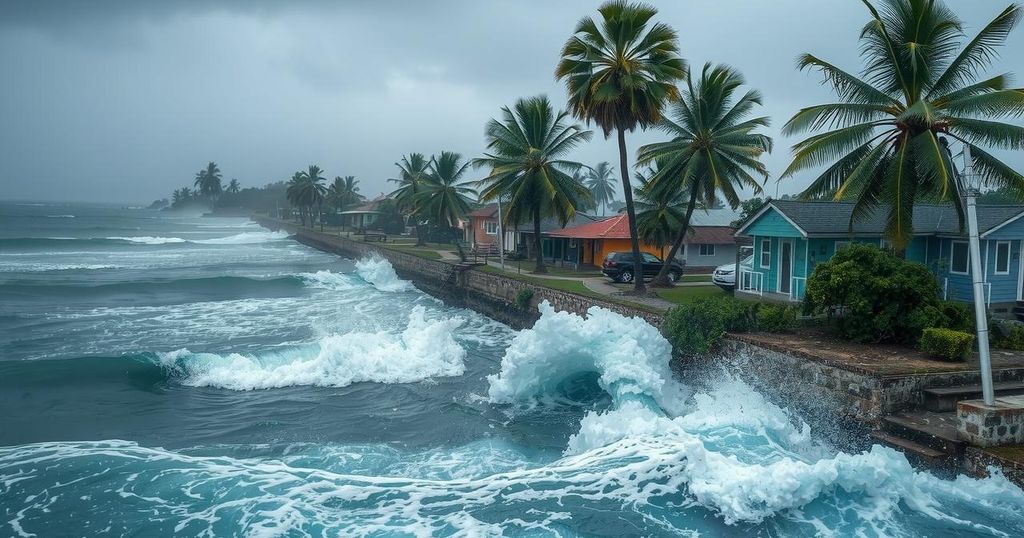Mozambique Humanitarian Crisis: The Impact of Tropical Cyclone Chido
Mozambique is currently experiencing a complex emergency due to Tropical Cyclone Chido, resulting in significant casualties and acute food insecurity affecting millions. As of now, an estimated 3.3 million individuals are facing food insecurity, with approximately 2.3 million requiring humanitarian assistance. Conflict and violence continue to drive internal displacement, further complicating the humanitarian landscape in the region.
In the wake of Tropical Cyclone Chido, which struck northern Mozambique on December 15, 2024, the humanitarian situation has been intensified, resulting in significant casualties and displacement. The cyclone caused at least 73 fatalities and left approximately 329,500 individuals in urgent need of assistance, as reported by the Government of Mozambique (GoRM). Furthermore, around 3.3 million people are projected to experience acute food insecurity between November 2024 and February 2025, driven largely by depleted food stocks from below-average harvests during the previous agricultural season.
As of January 2024, the United Nations (UN) noted that approximately 2.3 million persons in Mozambique require humanitarian aid, with displacements rising notably due to violence from non-state armed groups (NSAGs), especially in the conflict-ridden Cabo Delgado Province. This escalation in violence has raised serious protection concerns for affected populations and hampered the access of humanitarian agencies to those in urgent need. As of mid-2024, the International Organization for Migration (IOM) indicated that there are 717,000 internally displaced persons (IDPs) in Mozambique, with 577,000 of those affected by ongoing conflict.
Additionally, there has been an influx of returnees to their areas of origin, totaling approximately 611,000 as per IOM’s July 2024 report. The combination of natural disasters, conflict, and health crises has left Mozambique in a complex emergency situation, necessitating coordinated humanitarian responses to assist the most vulnerable populations amidst these dire circumstances.
Mozambique has been grappling with multifaceted challenges, including severe weather events, ongoing conflicts, displacement issues, and health emergencies. Tropical Cyclone Chido’s impact is merely the latest in a series of climatic events that exacerbate pre-existing vulnerabilities within the population. The country faces high levels of internal displacement, particularly in the northern provinces, where violence from non-state actors propels humanitarian needs. The combined threats of food insecurity, displacement, and health crises create a complex emergency that calls for urgent intervention and support from international and local partners.
In summary, Mozambique’s situation remains profoundly critical following Tropical Cyclone Chido, with millions of individuals facing acute food insecurity and a significant number of internal displacements driven by conflict. The need for humanitarian assistance is pressing, as various crises intertwine to affect the livelihoods and security of vulnerable populations. Coordinated efforts will be essential in providing the necessary support to those in desperate need throughout the coming months.
Original Source: reliefweb.int




Post Comment